This video is no longer available.
Police in Prince George’s County, Maryland, are wrapping up Autism Awareness Month with a big donation that will allow them to continue celebrating the month well beyond the end of April.
They’re called Autism Support Kits.
To most of us, it looks just like a backpack filled with something for a child. But Prince George’s County Police Chief Malik Aziz said it’s “a very valuable kit — it’s just as valuable as any tool that we have.” And now the department has 500 of them.
“Some people with autism may be nonspeaking or limited in their ability to communicate,” said Aziz. “A consistent routine for an autistic child is always best. But life sometimes brings sudden, unexpected changes and events and that alone, to an autistic child, can be very distressing and upsetting. Helping our officers understand the unique needs of autistic children and providing these sensory kits can help create a more supportive interaction under traumatic circumstances.”
The kits were donated by the Maryland-based Hussman Institute for Autism. Each of them include numerous cards that aim to help police understand the right way to approach someone with autism, as well as tools that might help someone who is autistic respond back.
“So we have this card here and it has pictures for help food, water, bathroom, break or stop. And again, this just could open a conversation between a police officer and that person in need to figure out if there’s anything that they need in that moment,” said Beth Benevides, director of outreach at the Hussman Institute and the mother of an autistic child.
“We have ‘I feel’ cards with different pictures of how someone might feel. And again, one of the simplest things an officer can ask someone is, ‘How are you? What do you need? How do you feel? How can I help?’ And so, and these communication starters might lead to those clues,” Benevides added.
The packs also include a dry erase card and marker, as well as a letter board that allows someone to point with their fingers as if it’s a keyboard to spell out what they want to say.
“Providing visuals can sometimes help even when a verbal instruction might not be enough,” Benevides said. “So literally taking that whiteboard and drawing something, or drawing first this, then this, giving that extra visual support can be extremely important in crossing that barrier to getting someone to understand what’s going on or to make a choice.”
Sensory items, such as noise canceling headphones, stress relief balls, sunglasses, a liquid bubbler and rubber push pop fidgets, are also inside.
“These items are really to help in those situations where people may be overwhelmed by the environment,” Benevides said.
Aziz said these kits will be used more often than you might think.
“We make a lot of traffic stops. And we have a lot of engagements outside of that,” Aziz said. “Over the last few years, we’ve expanded our training inside of our police academy to include how to act, how to have a procedure.”
“Now this is breaking down barriers,” he added. “This right here is gigantic for us.”
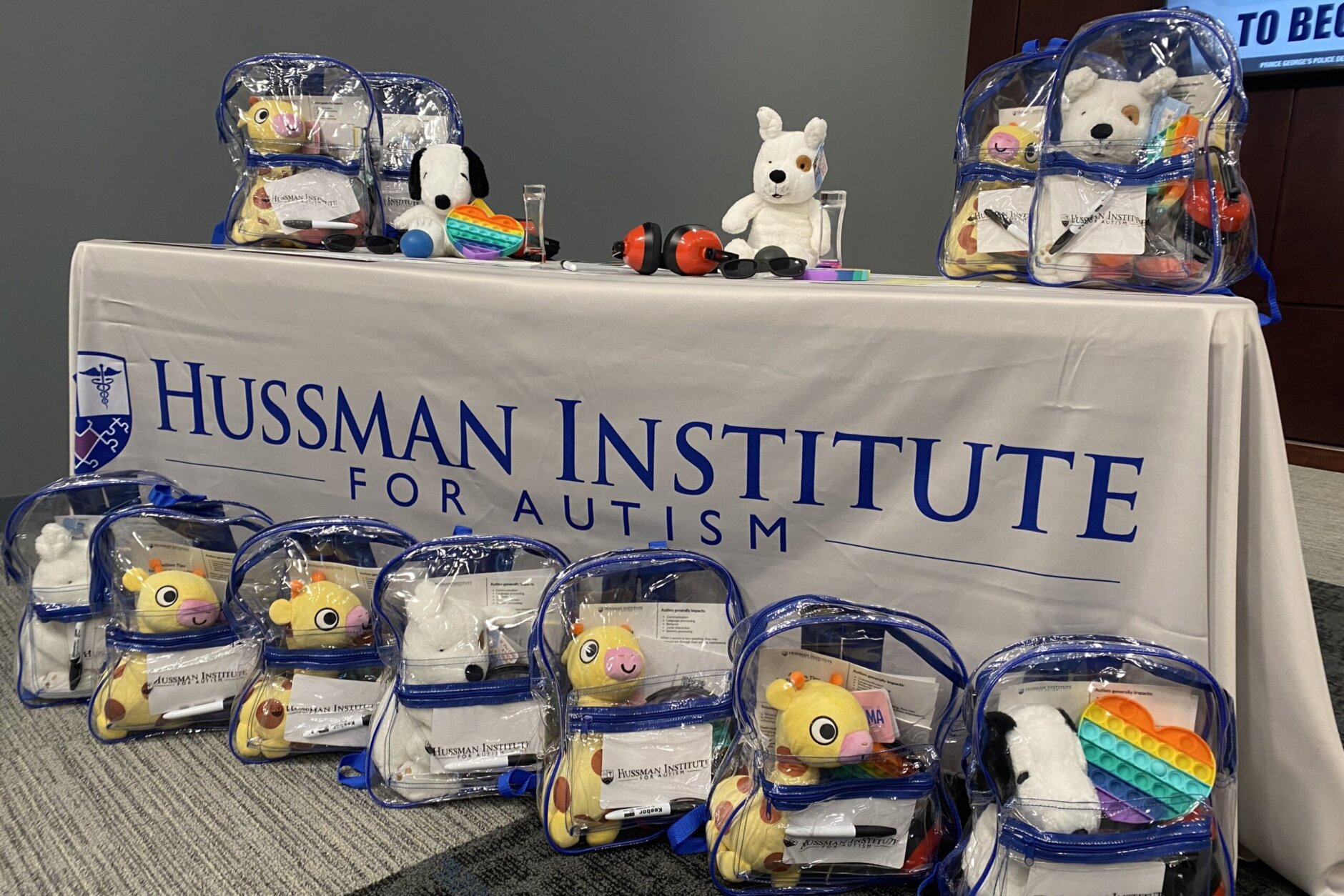
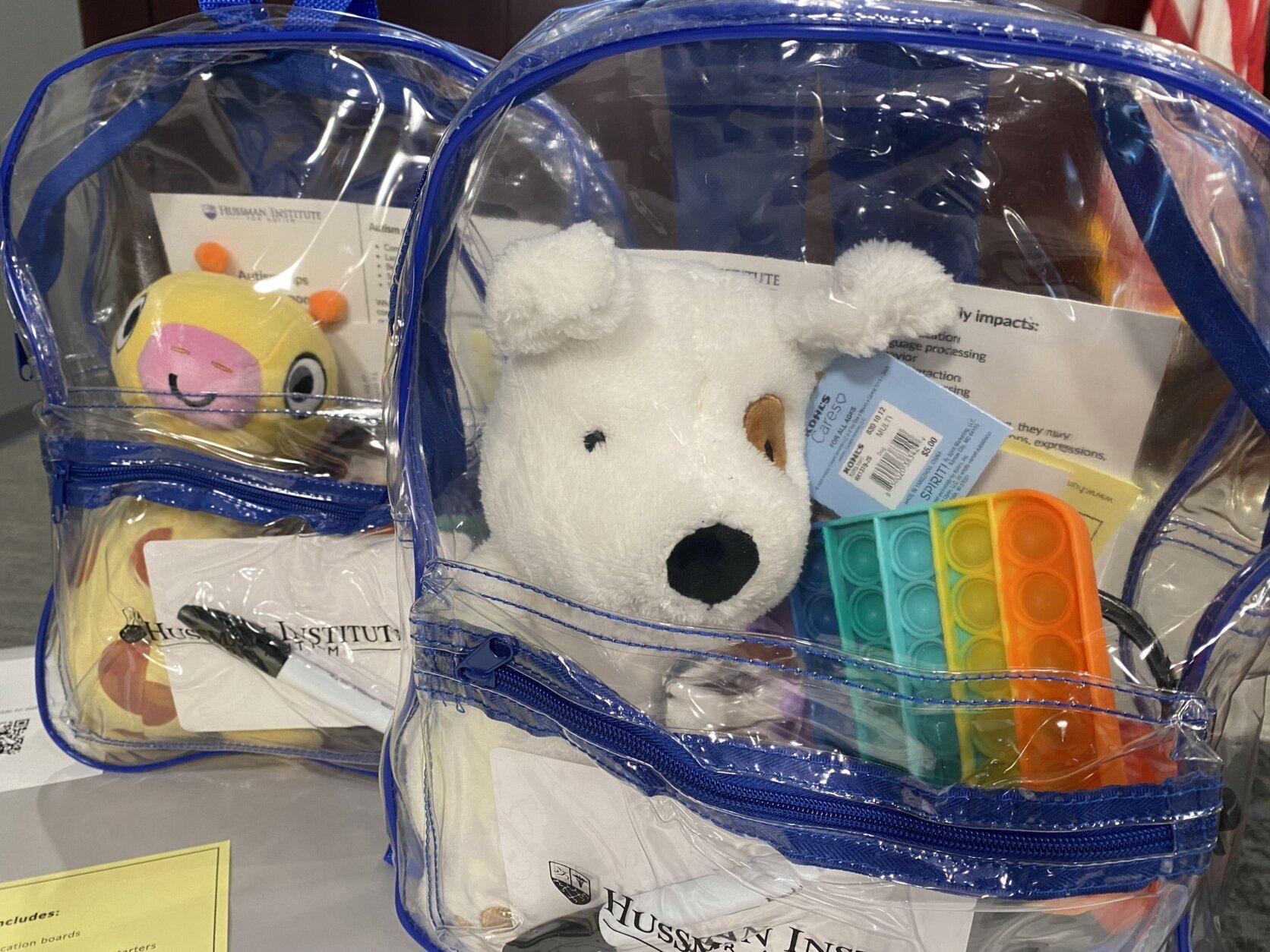
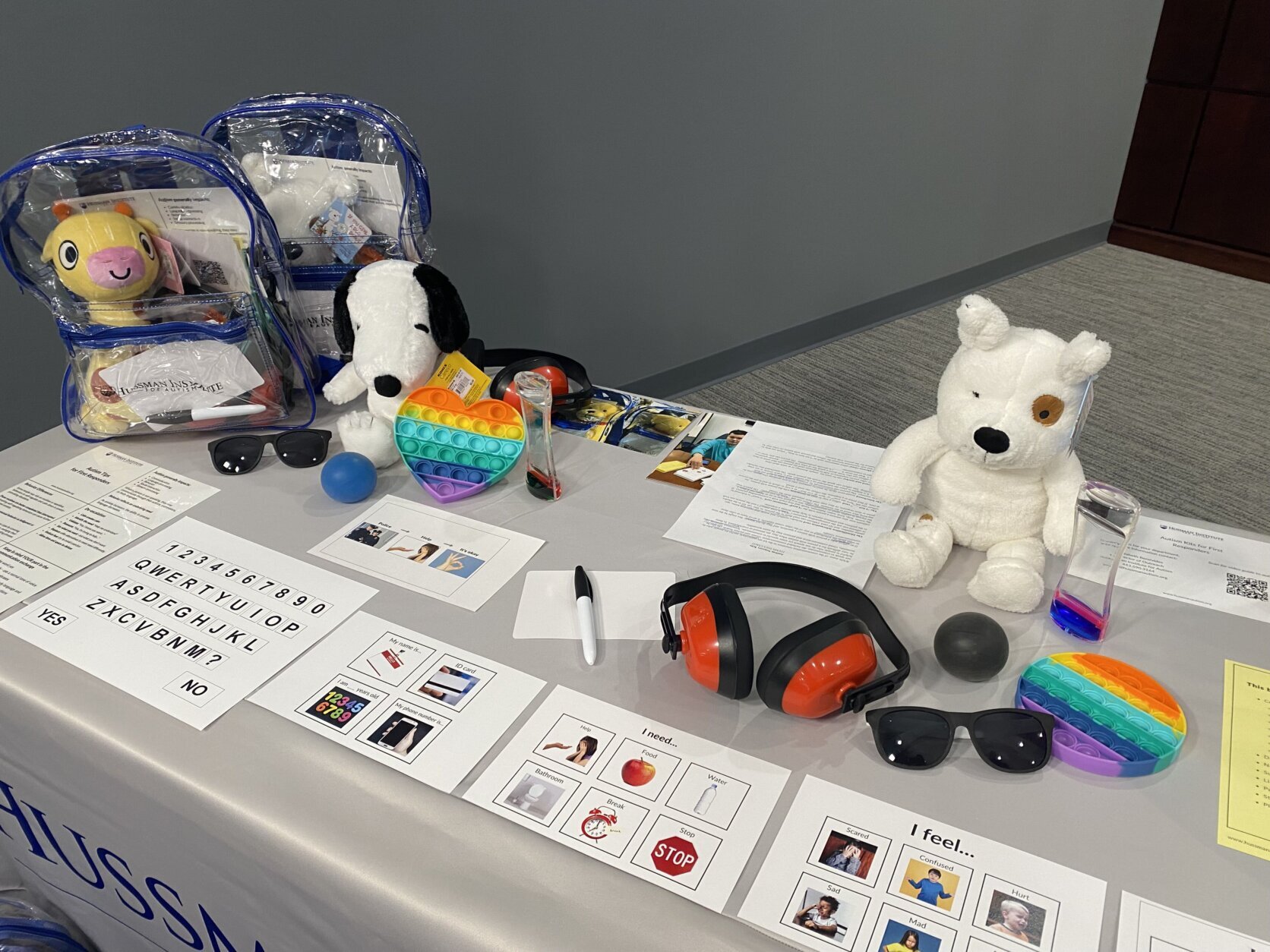
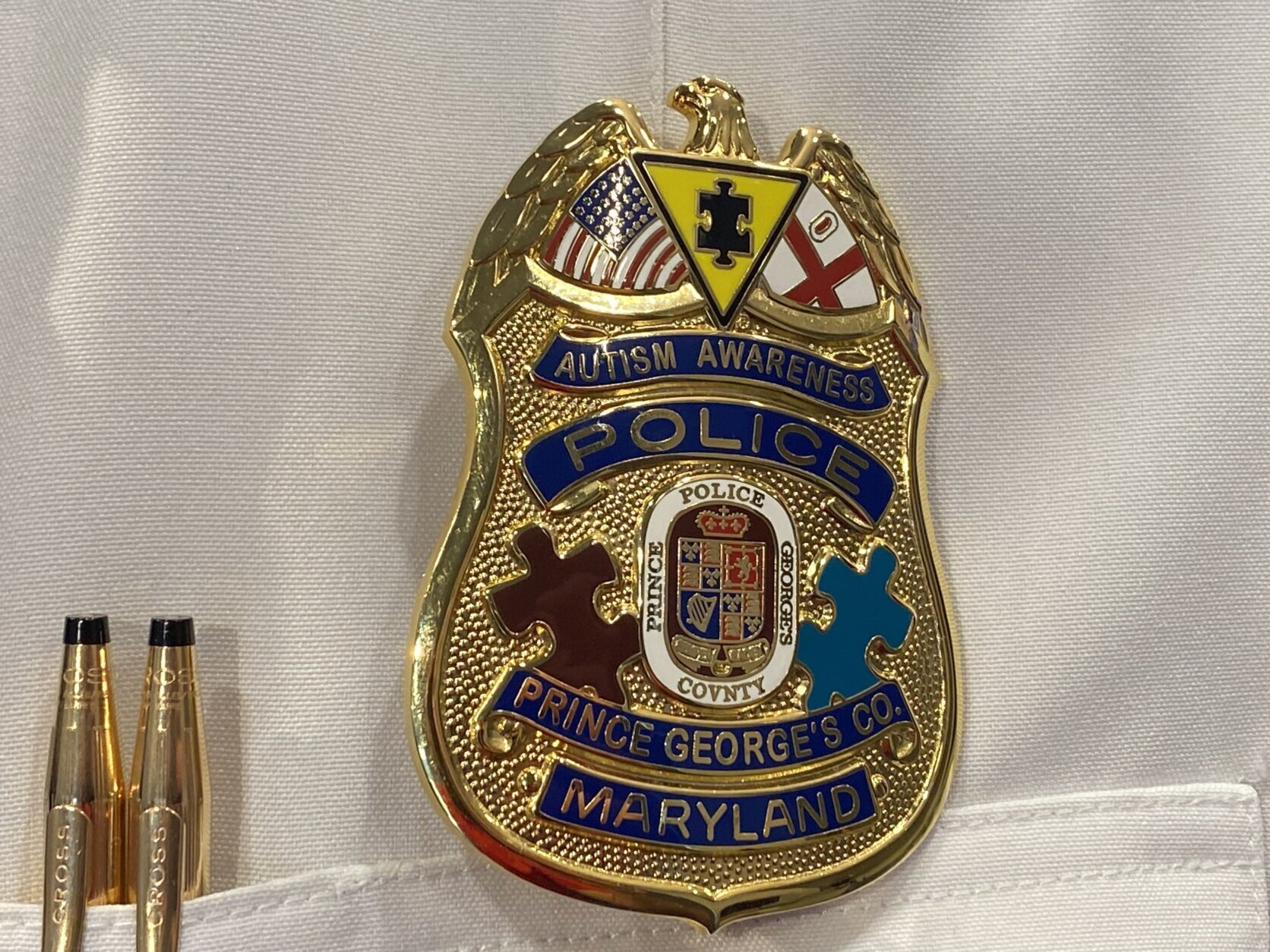
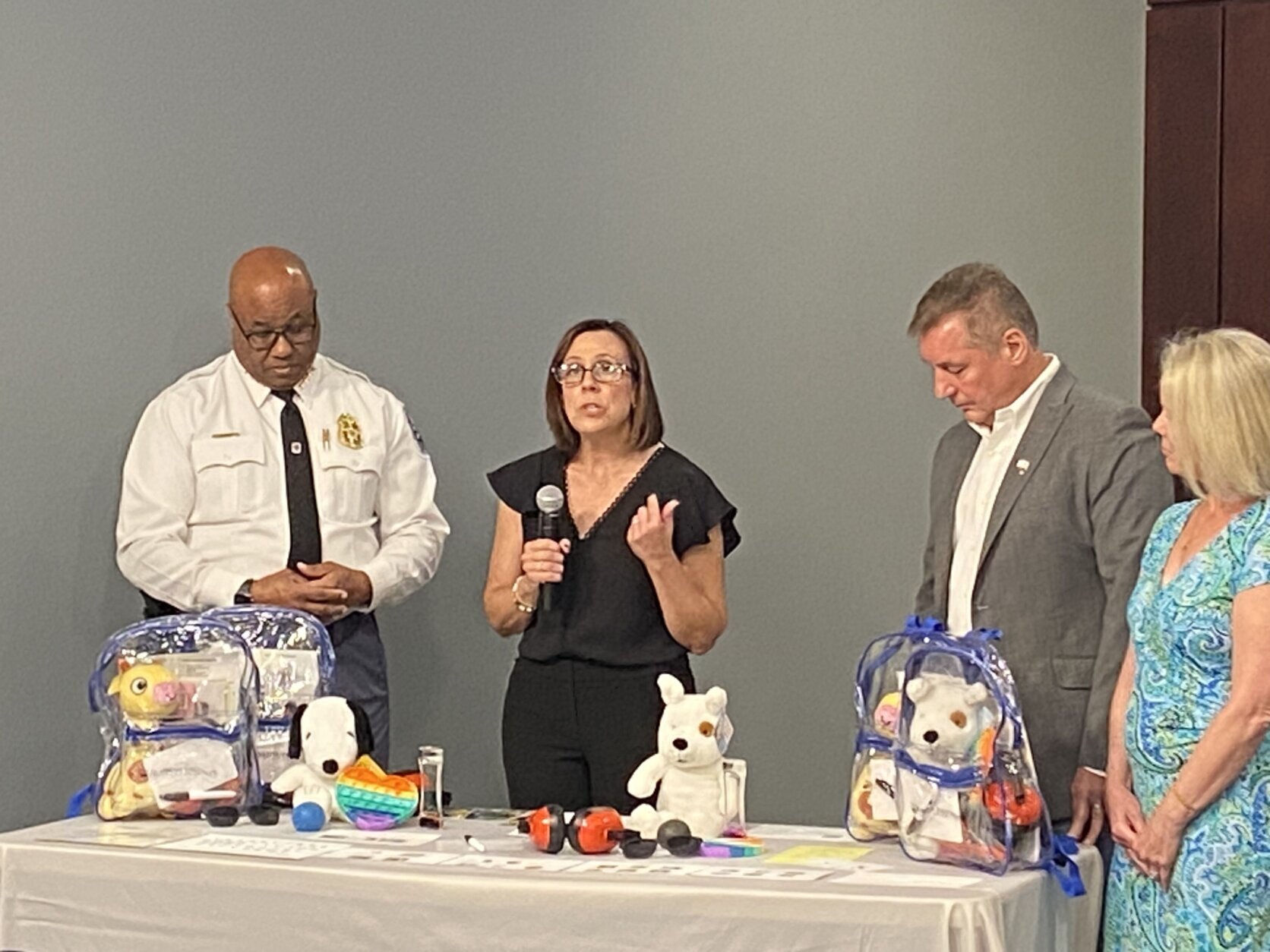
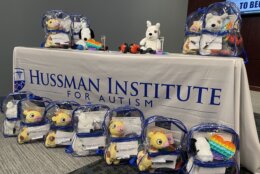
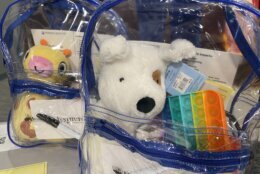
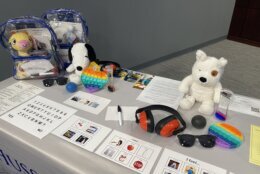
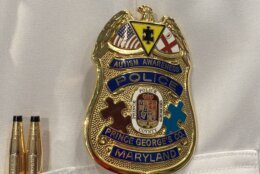
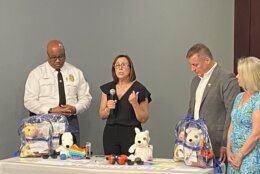
Get breaking news and daily headlines delivered to your email inbox by signing up here.
© 2024 WTOP. All Rights Reserved. This website is not intended for users located within the European Economic Area.







